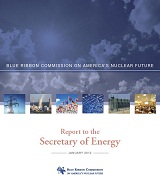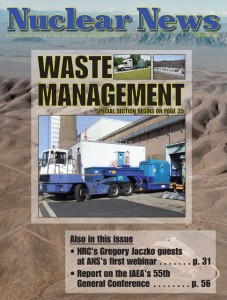Texas congressman weighs in on Yucca Mountain

Burgess
The U.S. Congress has failed to uphold its promise to fully fund Yucca Mountain, in Nevada, as a permanent repository for spent nuclear fuel, Rep. Michael C. Burgess (R., Texas) writes in an op-ed article published on December 8 in the Dallas Morning News.
More than three decades after passing the Nuclear Waste Policy Act, Congress has yet to fully fund the Yucca Mountain Project. Burgess points out that while some countries have found success with reprocessing spent fuels, the fission process will always produce some amount of material that must be safely disposed, making it necessary to find a permanent solution.






 A United States appellate court recently handed down two long-awaited rulings with respect to Yucca Mountain. As most observers expected, both decisions were decidedly in nuclear's favor.
A United States appellate court recently handed down two long-awaited rulings with respect to Yucca Mountain. As most observers expected, both decisions were decidedly in nuclear's favor. In my September post at the ANS Nuclear Cafe,
In my September post at the ANS Nuclear Cafe,  Several important events have recently occurred involving the U.S. Nuclear Regulatory Commission, the Yucca Mountain nuclear waste repository, and the interactions between the two.
Several important events have recently occurred involving the U.S. Nuclear Regulatory Commission, the Yucca Mountain nuclear waste repository, and the interactions between the two.
